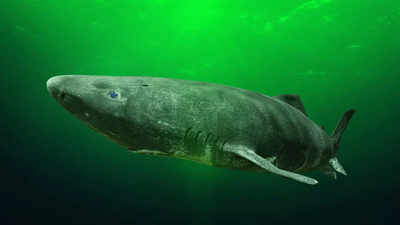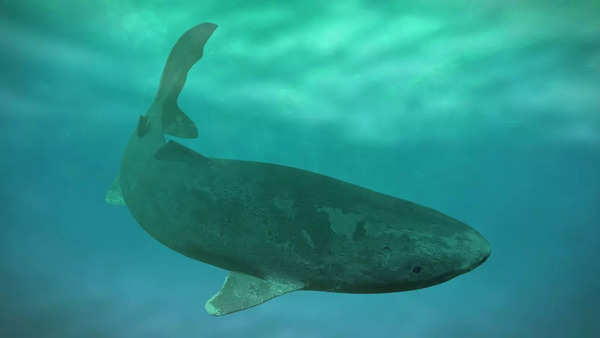
The mysteries of the natural world have always fascinated scientists and ordinary people. Among these secrets, Longevity It is particularly attractive from certain species. While many animals have relatively short lifespans, some species defy the odds and live for centuries. One of these creatures is remarkable Greenland sharkwhose lifespan can be increased up to 500 years.
Attempts to understand the secrets behind such extraordinary longevity have led researchers to examine various factors, including genetics, environment, and physiology. The Greenland shark, known by the scientific name Somniosus microcephalus, lives in the deep and cold waters of the Arctic Ocean and the North Atlantic Ocean. These sharks can be found at depths of 2,647 meters (8,684 feet), where the temperature is around 29 degrees Fahrenheit (minus 1.8 degrees Celsius).
One of the key factors contributing to the Greenland shark’s longevity is its incredibly slow metabolism. Unlike many animals, whose metabolic rate decreases with age, the Greenland shark metabolism It remains remarkably stable throughout its lifetime. This unique metabolic property was highlighted in a study presented at the university Society of Experimental Biology Conference in Prague in July 2024. Ewan CampbellsonPhD student in University of Manchesterled the research, which included enzyme assays on muscle tissue samples from sharks of different ages.

Representative image
The findings showed that the metabolic activity in Greenland shark muscles does not change significantly with age. This stability in the rate of metabolism is very important to maintain it Cell function and reducing the accumulation of cellular damage over time. In most animals, a decrease in the rate of metabolism leads to a decrease in energy production, slower repair and regeneration of cells, and an increase in the accumulation of cellular waste products. The Greenland shark’s ability to maintain a constant metabolic rate helps it avoid these age-related issues.
Another factor affecting the longevity of the Greenland shark is its slow growth and late sexual maturity. These sharks grow incredibly slowly and reach sexual maturity only at the age of 150. This long period of growth and development allows sharks to invest more energy in maintenance and repair processes, further extending their lifespan. However, this slow growth rate makes the species vulnerable to environmental changes and human activities, as their long generation times limit their ability to adapt quickly.
The cold and deep waters in which the Greenland shark lives also play an important role in its longevity. Extreme cold slows down the shark’s metabolic processes and reduces wear and tear on its body over time. This adaptation to cold environments is a common feature among long-lived species, as it helps conserve energy and minimize cell damage.
The remarkable longevity of the Greenland shark has not only fascinated scientists, but also has potential implications for them. human health. By studying the unique metabolic and physiological characteristics of these sharks, the researchers hope to gain insight into the mechanisms of aging and longevity. Understanding how the Greenland shark maintains cellular function and prevents age-related diseases could lead to advances in Anti-aging treatments and cardiovascular health for humans.
Why uterine fibroids are increasing and how to manage this silent growth
#secret #Greenland #sharks #500year #lifespan #Indian #time